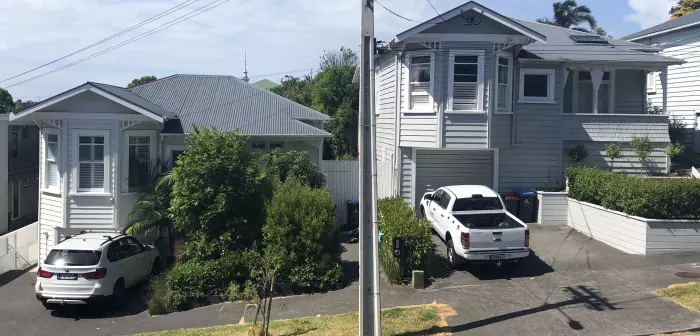"Now we're getting back to Auckland," Ray White auctioneer Wayne Maguire said as bids for a Glendowie home breached $1 million yesterday.
Bids for the modest, three-bedroom Romola St townhouse had kicked off at $750,000, which Maguire steered to an eventual sale price of $1.156 million in $25,000 increments, $306,000 more than its listed rateable value.
While that's nothing new for Auckland's Eastern Bays, where a million dollars is considered a baseline for any size home, homes selling for a million is becoming standard across the country.
It's already at a median price of $1.04 million in Auckland, and $812,000 in Wellington, according to latest Real Estate Institute of New Zealand numbers.
The number of properties selling at the $1 million or better level jumped by more than two-thirds last year, compared to the prior year.
While more than 10,000 of those were in Auckland, that also reflected a 61.5 percent hike in sales outside the city, with the institute counting 18,181 homes sold ahead of the $1 million mark — its highest level ever and up about 7,300 on the prior year.
By December, the total number of $1 million-plus homes represented 27.9 percent of overall sales, up from 16 percent in December 2019. At the other end of the spectrum, sales in the sub-$500,000 category were few and far between, sliding from almost a third of all sales in 2019 to less than one-in-five.
$3 million club also growing
At the top end of the market, sales in the $3 million-plus category more than doubled overall, with two-thirds of those transacting during the second half of the year — post covid lockdown.
The bulk of those sales — unsurprisingly — were in Auckland where 713 properties sold for $3 million or more, an increase of 390 homes, or 120.7 percent. Both Wellington and Waikato saw top end house sales climb by two-thirds, from nine to 15 properties in each region.
Institute chief executive Bindi Norwell attributed the price surge to demand continuing to outweigh supply, record low interest rates, increased regional investment and increased consumer confidence levels.
She said the "fear of missing out" was continuing to play a role as was the looming reinstatement of the loan-to-value ratios on investors by the Reserve Bank early this year.
"Additionally, we’ve seen an increase in first home buyers in the market who tend to be purchasing at the lower to mid end of the market, which in turn, lifts the overall market up."
Norwell said people were waiting to see whether more stock will come to the market this year, or if investor buying will slow with the reintroduction of LVRs.
"The government and the industry need to work together to ensure that the ongoing unaffordability of housing in NZ can be improved,” she said.














